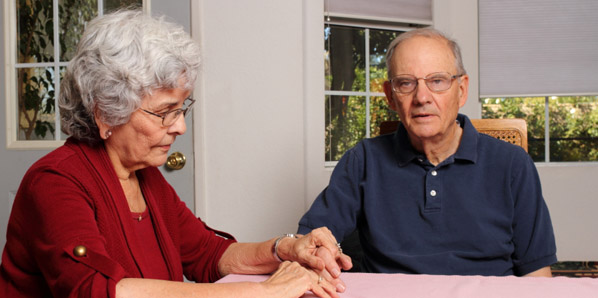Alzheimer's and Dementia: What is the difference?
Many people seem to use Alzheimer's Disease and dementia interchangeably, although they are not synonymous. These two terms are similar but they should not be confused with one another. Dementia is a broader term than Alzheimer's Disease. In order to clear up the confusion people might have, we take a closer look at the relationship between dementia and Alzheimer's Disease.What is Dementia in relation to Alzheimer's Disease?
According to the Dementia Guide, dementia is the, “impairment of thinking and memory that interferes with a person's ability to do things which he or she previously was able to do.” In essence, dementia is the slow deterioration of our cognition, consisting of its own signs and symptoms, and is classified as a syndrome rather than a disease. Alzheimer's Disease is one disease of many that can fall under the umbrella of dementia.

Symptoms of Dementia
- Loss of memory
- Loss of judgment and reasoning
- Changes in mood and behaviour
It’s important to note here that we all experience forgetfulness in our daily lives due to stress and being on the go, and that changes in memory as we age (such as not processing information as quickly as we used to) is quite normal. By contrast, dementia is the debilitating loss of memory, decision-making skills, social skills, and overall personality, which is not normal.
Causes of dementia may include:
History of head trauma
Consistently high blood pressure
Drug abuse
Side effects from certain medications
Alcoholism
Thyroid function abnormalities
Vitamin B12 deficiencies
Just as there are many forms of dementia (which is why dementia is considered an “umbrella term for a variety of brain disorders”), there are many causes of dementia, and Alzheimer’s is known to be one of them.
What is Alzheimer’s Disease in relation to dementia?
Alzheimer’s disease is a progressive disease that causes dementia. In fact, it is one of the most common forms of dementia. It not only destroys brain cells but causes significant, “problems with memory, thinking and behavior severe enough to affect work, lifelong hobbies or social life.”
Over time, Alzheimer’s can drastically affect a person’s inability to take care of themselves as they find they can no longer perform the most basic activities of daily living. In its most severe state, Alzheimer’s can cause a person to forget family members and friends, get lost in familiar places, experience rapid mood swings, and understand basic language.
On a scientific level, Alzheimer’s disease is characterized by the appearance of “plaques and tangles in the brain.” These occur naturally as we age, but there is an abnormal amount shown in people with Alzheimer’s which interfere dramatically with brain function. Therefore Alzheimer’s is also called, “pathological rapidly aging of the brain.”
The Canadian Alzheimer Society lists these 10 warning signs for Alzheimer’s:
- Memory loss that affects day-to-day function
- Difficulty performing familiar tasks.
- Problems with language.
- Disorientation of time and place
- Poor or decreased judgment
- Problems with abstract thinking
- Misplacing things
- Changes in mood and behaviour
- Changes in personality
- Loss of initiative
Risk factors include:
- Age
- Family history and genetics
- Female gender
- Cardiovascular disease
- Diabetes
Treatment
There remains no cure for reversing or stopping dementia and Alzheimer’s disease, however there are many treatment options available, ranging from medications to improve the symptoms and cognitive training to improve some areas of cognitive thinking.
While the difference between dementia and Alzheimer’s disease is not as readily apparent, and while not everyone who may have dementia gets Alzheimer’s disease, it is important as always to seek advice from a health professional to determine your own risk factors and talk about any symptoms or concerns.
For more information on dementia and Alzheimer’s disease, what to look for and where to get support, please visit: http://www.alzheimer.ca/en/on


